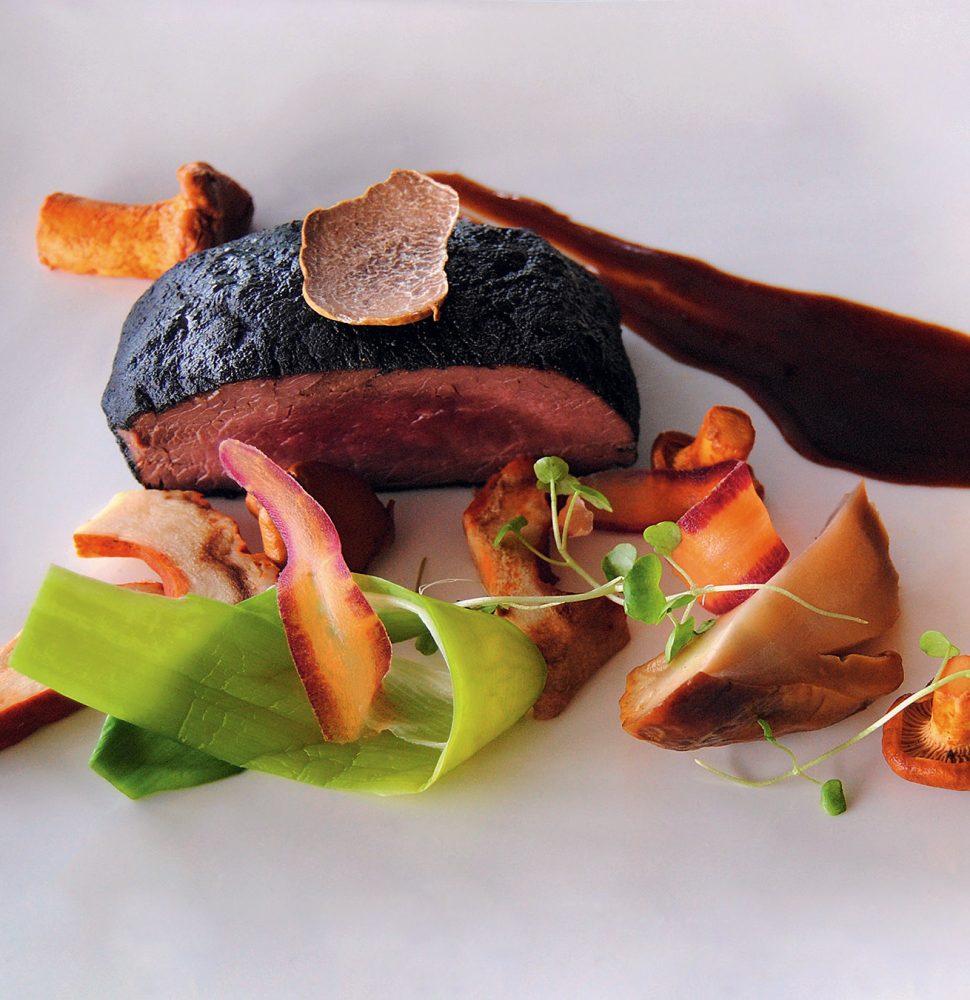With a slogan that says, “Our business is going wild,” Coquitlam-based Hills Foods is all that and more. More being local, organic, sustainable, free range, wild meat, game and poultry, with some exotic proteins like Australian camel, kangaroo and ostrich in the mix.
Hills Foods, established in 1987, traces its roots to Expo 86, when visiting European chefs asked Mark Hills—then working for a fish supplier—for buffalo, rabbit, caribou and muskox. “These chefs couldn’t understand why these things that we are known for [in Canada] weren’t available,” says Hills, a certified chef de cuisine. “That’s when the light went on.” Starting a business supplying these items was natural.
Right out of the gate, Mark Hills bought and then soon sold a rabbit processing plant. But by the 1990s, he was selling rabbit along with pheasant, wild boar, buffalo, venison and specialty duck, all locally sourced, much of it from the Fraser Valley, Pemberton and Northern B.C. In the nineties, today’s buzzwords—local, organic, farm-raised, free-range, wild harvest, non-medicated—weren’t much in use, but they describe exactly what Hills was sourcing and selling.
Today, Hills Foods is the go-to place for chefs, butcher shops and specialty grocers (including Stong’s Market on Dunbar and Sebastian & Co. in West Vancouver) seeking sustainable, certified-organic specialty meat and poultry. “Organic beef, pork and chicken are everywhere, and even buffalo and venison are mainstream these days,” Hills says.
He continues to source unique Canadian products. “One of my first choices for protein is wild-harvest muskox or caribou. It’s the epitome of protein—rich flavour, clean and unadulterated,” says Hills. He’s most proud of a product that he created: Mipkuzola air-dried wild Arctic muskox. It’s wildly successful in Alberta.
A couple of other new products are also gaining traction across Canada. Luscious Breviro caviar from sturgeon sustainably farmed in New Brunswick is making waves and, given the rise in popularity of grass-fed proteins, so is free-range Tibetan yak from Merritt, B.C.
Recently, two Vancouver chefs—Jefferson Alvarez from West Vancouver’s fine dining restaurant Fraîche, and Derek Bothwell from Gastown’s laid-back Chill Winston—visited Hills Foods to butcher yaks they’d purchased. Bothwell had previously been to Merritt to choose his animal and has relished the meat’s journey from pasture to plate. In October, he cooked a sell-out slow food yak dinner for an enthusiastic crowd, and has since added yak to his regular menu. Alvarez shares the enthusiasm. “Yak sells out,” he says. “It’s nutritionally superior and tastes like super amazing, premium beef.”
Increasingly health-conscious consumers are trekking out to Hills’s facility in Coquitlam to pick up pre-orders they’ve made after browsing through the online catalogue. Others prefer the serendipity of seeing what’s in the custom-built display freezer filled with everything from bison sliders, grain-fed buffalo steaks, wild boar chops and Tibetan yak to novelty Sezmu wine-fed beef from the Okanagan.
If you’re curious about cooking some of these meats, Vancouver Cooks 2, published by Douglas & McIntyre, is packed with recipes from top Vancouver chefs. Some that tempt include John Bishop’s oven-braised venison ragout, Ned Bell’s smoked cheddar bison burgers and David Hawksworth’s red wine–braised oxtail.
Photo: Courtesy of FraÎche.








